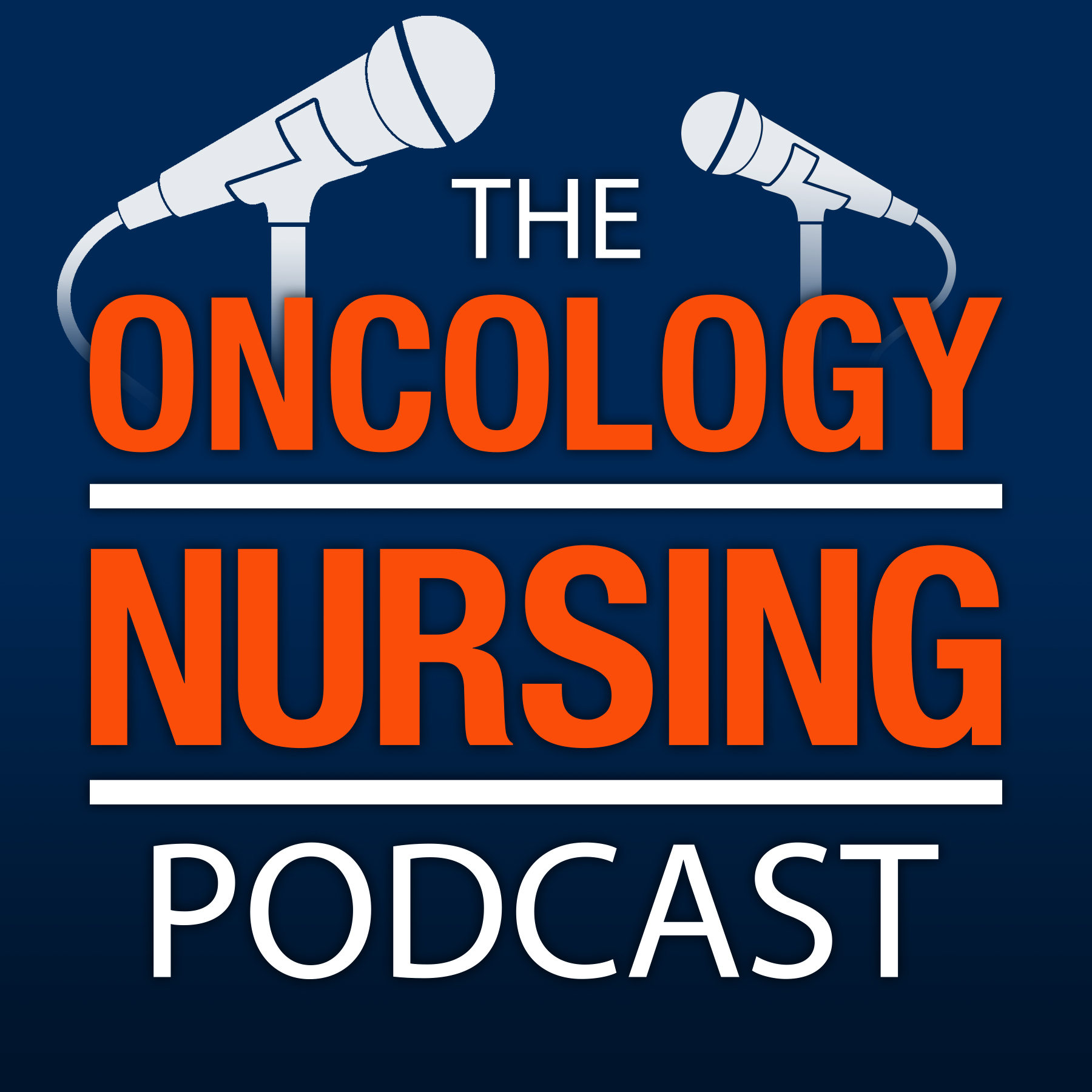
Episode 264: Stop the Stressors and Improve Your Mental Health as a Nurse

The Oncology Nursing Podcast
Shownotes Transcript
“The mental and physical health of the healthcare team, especially the nurses, has to come first because if you are not physically and mentally and spiritually in a good place, you cannot help other people. We’re going to have less good health care, we are going to have more errors, we’re going to have less safety, and we are going to have another 100,000 nurses leaving the field,” Matthew Loscalzo, LCSW, executive director of People and Enterprise Transformation, emeritus professor of supportive care medicine, and professor of population sciences at City of Hope in Duarte, CA, told Lenise Taylor, MN, RN, AOCNS®, BMTCN®, oncology clinical specialist at ONS, during a conversation about the stressors that are affecting nurses. You can earn free NCPD contact hours after listening to this episode and completing the evaluation linked below.
Music Credit: “Fireflies and Stardust” by Kevin MacLeod
Licensed under Creative Commons by Attribution 3.0
Music Credit: “Birth of a Hero” by Benjamin Tissot
License code: 7B2F6ZBTINETT4WQ
Earn 0.75 contact hours of nursing continuing professional development (NCPD) by listening to the full recording and completing an evaluation at myoutcomes.ons.org by June 16, 2025. The planners and faculty for this episode have no relevant financial relationships with ineligible companies to disclose. ONS is accredited as a provider of NCPD by the American Nurses Credentialing Center’s Commission on Accreditation.
Learning outcome: The learner will report an increase in knowledge related to supporting the mental health of nurses.
Episode Notes
- Complete this evaluation for free NCPD.
- Oncology Nursing Podcast episodes:
- ONS Voice articles:
- Clinical Journal of Oncology Nursing article: Psychosocial Well-Being: An Exploratory Cross-Sectional Evaluation of Loneliness, Anxiety, Depression, Self-Compassion, and Professional Quality of Life in Oncology Nurses
- ONS Nurse Well-Being Learning Library
- ONS course: Facilitating Intentional Conversations
- Addressing Health Worker Burnout: U.S. Surgeon General’s Advisory on Building a Thriving Health Workforce
- U.S. Surgeon General’s Framework for Workplace Mental Health and Well-Being
- U.S. Department of Veterans Affairs: Skills for Psychological Recovery: Field Operations Guide
- Biopsychosocial Model
- Learn more about the staff leadership model.
To discuss the information in this episode with other oncology nurses, visit the ONS Communities.
To find resources for creating an ONS Podcast Club in your chapter or nursing community, visit the ONS Podcast Library.
To provide feedback or otherwise reach ONS about the podcast, email pubONSVoice@ons.org.
Highlights From Today’s Episode
“There is overwork, but there is something even bigger, even more sinister, and that is this evolving lack of respect throughout our society. But when it manifests in the healthcare system, where people come in vulnerable states to be protected and they have this adversity to those who care most about them, this is a profound change, this is a unique change. Although it is happening in society for all authority, when it’s in the healthcare system, it manifests in a profoundly different way, and the impact on nurses cannot be overstated.” Timestamp (TS) 05:44
“There is that space between your brain and your heart that I think we should inhabit. We need to have wisdom, we need to have training, but we also need to go to back to our core values. The core value that other people matter. And mostly, I cannot help those other people until I am centered.” TS 19:35
“Structural change is essential, and structural change only comes with some conflict. And I mean healthy, democratic, respectful conversations with each other, with our teams, to advocate for healthier institutions.” TS 27:18
“I think with all people, but especially in the complex environment of health care, focus on what you can influence. Look at your life as a circle and see yourself in that life and say, ‘What can I actually influence rather than allowing myself to be frustrated by things that I cannot have any control over?’” TS 31:00
“One of the biggest problems is that nurses feel that they should just work harder, cope harder. I get very upset when I hear people say and I see it written that nurses should just practice more meditation. Or they should work harder. That is a misconception. It is toxic, and it is dangerous. We have to look at nurses within in the system, physicians within the system, all the healthcare professionals within the system, and say, ‘How do we get them healthy?’ If we don’t get them healthy, we don’t have a healthy healthcare system. We don’t have a healthy society.” TS 36:26